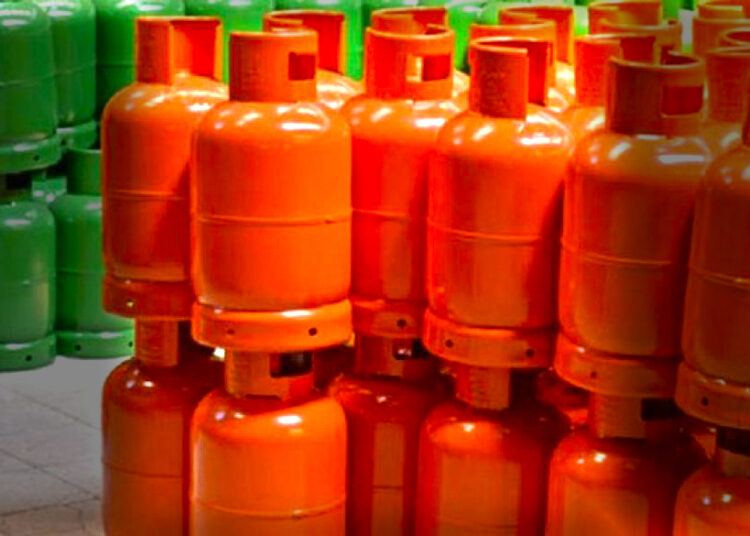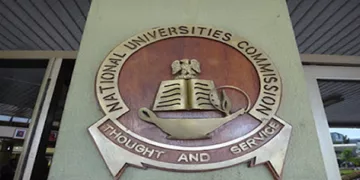Cooking gas prices in Nigeria have remained persistently high three months after the federal government’s export ban, which was implemented to stabilise domestic supply and curb soaring costs.
Despite this intervention, the average price of a 12.5kg cylinder of Liquefied Petroleum Gas (LPG) has surged to approximately N17,500, reflecting a staggering increase of over 114 per cent since June 2023 when prices were at N700/kg.
The government’s export ban, effective from November 1, 2024, was aimed at prioritising local consumption amid rising global prices and production costs.
Marketers’ profiteering blamed as 1kg hits N1,400
Some marketers of clean cooking fuel, particularly Liquefied Petroleum Gas (LPG), are using tactics that create unrealistic market conditions, leading to disruptions in both demand and supply.
LEADERSHIP investigations show that 1kg of LPG actually sells for N1,030, but marketers currently sell it for between N1200 and N1,400.
A marketer told our reporter that because there are no strict rules and people fear a shortage, individual sellers are setting prices that suit them.
He said affordability still remains a mirage as millions of Nigerian households are considering other domestic energy sources like charcoal.
Price fluctuations and, in some cases, the availability of LPG, also called cooking gas, remain critical factors discouraging a smooth switch to gas.
Despite the federal government’s export ban on the product, which supposedly commenced on November 1, 2024, the availability and affordability of the product have remain a major problem.
Our correspondent reports that Nigeria had imposed a ban on the export of its LPG unless sellers cover these with “cost-reflective” imports from November 1, under new policies aimed at stabilising prices and increasing the availability of cooking gas.
Our correspondent, who monitored the product’s prices, noticed a marginal decrease in LPG prices, indicating that the government’s efforts are yielding some benefits.
An independent fuel supplier who preferred to speak off the record said prices crashed in November 2024, and there was no increase up until January 2024.
According to him, 1 kg of gas from off-takers sells for about N1,030, but marketers are selling for as much as N1, 300 and N1 400 per kg.
At the Mobil filling station in the Anthony area of Lagos, LPG sells for N1,200 per kg.
The attendant, however, explained that, depending on the location, some of their stations sell it at prices as low as N1,150 and N1,200.
According to him, stations close to residential areas sell at lower prices because the aim is to make the product available to consumers.
However, the station in Anthony charges as high as N1,300 because it is located near an industrial area, and there is less demand for LPG for commercial use.
Meanwhile, the chief executive officer (CEO) of Smart Energies Limited, Dr. Yinka Opeke, told our correspondent that the gas company operates in the midstream and downstream sector and is focused on LPG, also known as cooking gas.
She explained that Smart Energies’ involvement in cooking gas intervention is to distribute free cylinders to communities and households within low-income brackets to reduce the cost of procurement and encourage switching to cleaner fuels.
Opeke explained further that Smart Energies had a mobile app through which people could order gas from the comfort of their homes, similar to Uber.
Earlier, the executive secretary of the Nigerian Liquified and Compressed Gases Association of Nigeria, Lanre Bayewu, said expectations of Nigerians for the exponential decrease in LPG prices may not happen because of several factors that are already crippling the economy.
Bayewu remarked that gas prices are dollar-denominated, and weak local currency will continue to jeopardise price stability efforts.
He likened the situation to what occurs in the pricing of petrol, where people had thought that with the operations of the Dangote refinery, the price of the product would crash.
According to him, market fundamentals are very important considerations and the rising inflation rate in the country is a potential issue that will create pricing problems for LPG consumers.
He also noted potential investors in the gas space as well as producers are paying some aspects of licence renewal in foreign currency which they build into cost of production and pass into the unit cost of the product for consumers.
Bayewu, however, said that with the export ban, there is likely going to be a major boost in the supply chain.
“Simple economics shows that with sustainable growth in supply, the market will see a marginal decrease in the price of LPG, but not as consumers assumed,” he said.
He equally pointed out that the cost of production and the overall business environment in Nigeria are on the high side, especially energy costs, all of which would reflect on the price of LPG.
“Also consider inadequate infrastructure, which is key to gas production for reassuring feedstock supply from gas producers and blending facilities as well transportation infrastructure, all of which can lead to higher prices for LPG,” he said.
He, however, expressed concern that the high LPG cost was discouraging people from entering the LPG space despite its potential for lowering greenhouse emissions and maintaining a healthy environment.
Nigeria’s LPG market continues to expand but growth has “plateaued a bit within the past two years, specifically this year”, largely owing to rising prices.
According to the National Bureau of Statistics (NBS), LPG costs rose by 80 per cent from January to September 2024, and retail prices for 12.5kg cylinders of LPG for cooking increased by 39 per cent from January to September the same year. Prices in September were 76 per cent higher than a year earlier.
The federal government, in a bold step to reduce prices, exempted LPG from value-added tax earlier in the year but Ekpo said previous efforts had failed to address price increases and the hardship they bring to Nigerians.’
“The country will also need to develop facilities to ‘blend, store, and deliver LPG domestically within 12 months,” Ekpo added.
These blending facilities are targeted at NNPC and Chevron’s joint venture, which produces an LPG mix that is unsuitable for the domestic market and is exported from the Escravos floating, storage and offloading facility in Niger Delta.
Blending the Escravos LPG mix to make it suitable for cooking has been successfully trialled, but according to an industry source, the political will to enforce it has until now been lacking.
The NNPC exported six cargoes of the Escravos LPG mix last year, with cargo sizes averaging 24,000 tonnes. Exports from Escravos stand at 181,000 tonnes in January-October.
Nigeria also exports propane from NNPC and ExxonMobil’s Bonny River terminal, but all four butane cargoes from the terminal, averaging 8,000 tonnes apiece, have been delivered domestically.
Propane is exported from NLNG’s Bonny Island terminal, which stood at about 134,000 tonnes in January-October. All butane is sold domestically.
“All LPG exports will cease until the (domestic) market achieves stability and sufficiency,” Ekpo said.





